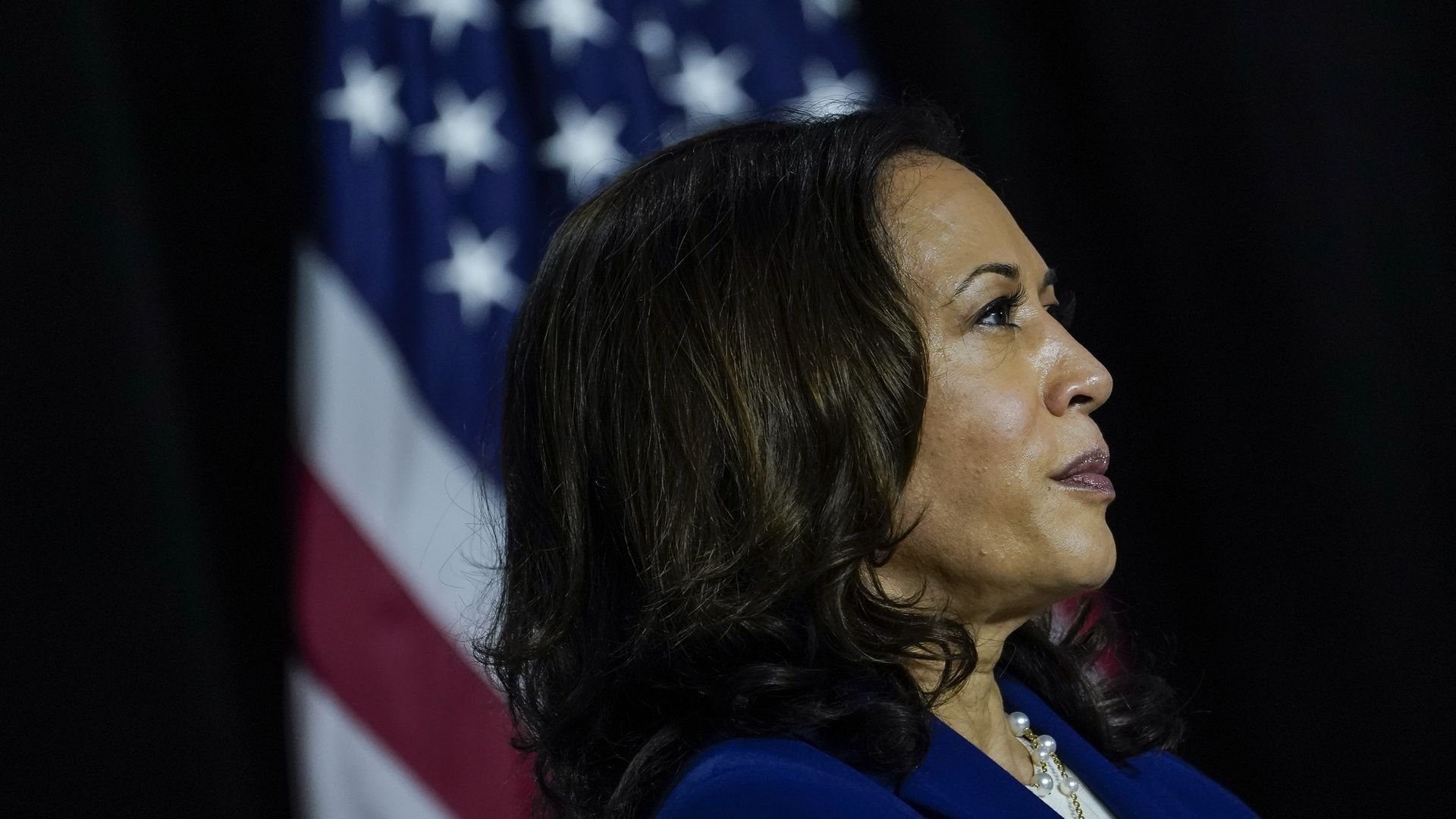Harris breaks through multiple barriers as VP-elect
Add Axios as your preferred source to
see more of our stories on Google.

Credit: Photo by Drew Angerer/Getty Images
Senator Kamala Harris of California will become the first woman, Black American and Indian American to serve as vice president.
The big picture: No woman has served as U.S. president, but Harris' ascent will put a woman first in the line of succession for the first time in history, in a year marking the 100th anniversary of women obtaining the constitutional right to vote.
Details: Harris, 56, is the daughter of immigrants; her father is from Brown's Town, Jamaica, and her mother is from Chennai, India.
- She is an alumna of Howard University, an HBCU, and member of Alpha Kappa Alpha, the first historically Black sorority.
- Her victory was being celebrated by women and people of color across the country and the world, on the Howard campus, and at Black Lives Matter Plaza across from the White House.
- Harris would not be the first vice president of color. That designation goes to Charles Curtis, President Hoover's vice president nearly a century ago, a member of the Kaw Nation, whose father was white and mother was Native American.
What they're saying: In a statement congratulating the Bidens, Obama saved a line for Harris and her husband, saying he "couldn’t be prouder to congratulate Kamala Harris and Doug Emhoff for Kamala’s groundbreaking election as our next Vice President."
Harris's husband, future second gentleman Doug Emhoff tweeted a photo of the couple moments after they learned the race had been called, with his arms around his wife and the simple words, "So proud of you." The photo captured an intimate moment, parallel to the photo Barack Obama posted after his reelection, embracing his wife, Michelle.
Biden senior adviser Symone Sanders: "It's a monumental thing. It's a historic day."
Actress Mindy Kaling wrote on Twitter: "Crying and holding my daughter, 'look baby, she looks like us.'"
Adrianne Shropshire, executive director of BlackPAC: "This is fundamentally about the ways in which the Democratic Party needs to shift — ushering in a living example for the country to be able to imagine what it looks like to have diverse leadership at the highest levels of government...it feels like we’ve spent the entire run-up to the election suppressing, in some ways, the historic nature of this race and her candidacy because it’s overshadowed by the fact that we’re trying to save democracy."
Arisha Hatch, executive director of Color of Change PAC: "She’s deemed herself a progressive prosecutor back in her day and I’m looking forward to her being able to meet this moment with a real idea of how to reimagine policy for black communities."
Nse Ufot, New Georgia Project: "There’s a belief among Democratic Party that holding the center is important, and the idea of this mythical unicorn of a white, male, moderate Democrat that they need to placate in order to win elections has been thoroughly debunked."
Neil Makhija, Executive Director of IMPACT: "Her election will supercharge the political engagement of the Indian American community."

